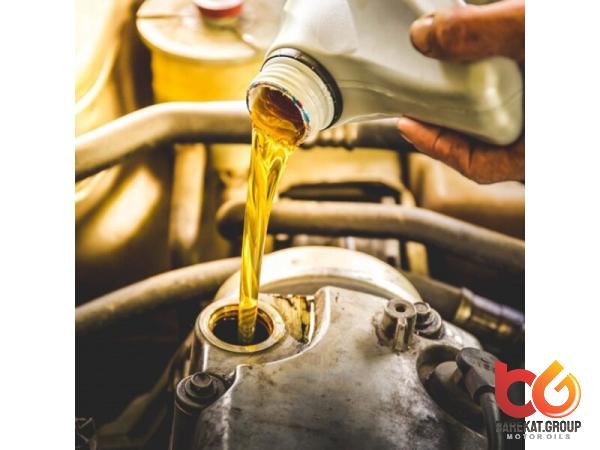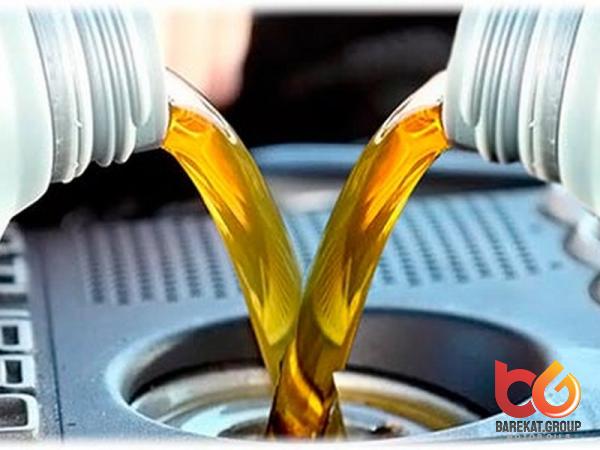An Overview High resistance motor oil is a specialized type of lubricant designed to provide superior protection and performance to the inner components of an engine. This article aims to provide a comprehensive summary of high resistance motor oil, including its composition, benefits, drawbacks, and applications in various industries. Composition of High Resistance Motor Oil: High resistance motor oil is formulated using a combination of base oils and additives. The base oils can be mineral oils, synthetic oils, or a blend of both. Synthetic base oils are often favored due to their superior performance and thermal stability, but mineral base oils are less expensive. Additives, on the other hand, are included to enhance specific properties of the oil, such as viscosity, lubrication, detergency, and anti-wear characteristics. Benefits of High Resistance Motor Oil: 1. Improved Wear Protection: High resistance motor oil contains additives that form a protective film on engine components, minimizing wear and extending their lifespan. This is particularly important in high-performance engines that are exposed to extreme operating conditions. 2. Enhanced Engine Performance: The exceptional thermal stability of high resistance motor oil helps to keep the engine cool under heavy loads and high temperatures, thereby minimizing the risk of overheating and ensuring optimal engine performance. 3. Sludge and Deposit Prevention: The detergency additives present in high resistance motor oil prevent the formation of harmful sludge and deposits, which can clog the engine and hinder its performance. This leads to a cleaner and more efficient engine. 4. Fuel Economy: High resistance motor oil featuring low viscosity grades can improve fuel efficiency by reducing internal friction within the engine. This, in turn, enhances the overall performance and mileage of the vehicle. 5. Extended Drain Intervals: High resistance motor oil generally exhibits superior oxidative stability, allowing for longer oil change intervals. This reduces maintenance costs and downtime for equipment and vehicles, making it an attractive choice for fleet managers and industrial operators.
Engine oil
 Drawbacks and Limitations: Although high resistance motor oil offers several advantages, it also has some limitations that need to be considered: 1. Higher Cost: High resistance motor oil tends to be more expensive than conventional oils due to the advanced technologies and superior performance they offer. However, the longer drain intervals and improved engine protection can offset the initial investment. 2. Limited Application: High resistance motor oil is primarily designed for high-performance engines and heavy-duty applications. It may not be necessary or cost-effective for engines operating under normal conditions, such as everyday passenger vehicles. Applications of High Resistance Motor Oil: 1. Automotive Industry: High resistance motor oil is extensively used in high-performance engines, racing cars, and heavy-duty vehicles like trucks and buses. It provides crucial protection against wear, deposits, and overheating, ensuring optimal performance. 2. Industrial Machinery: Various industrial applications, such as mining, construction, and power generation, expose engines to strenuous conditions. High resistance motor oil is employed to extend the life of machinery and mitigate potential costly breakdowns. 3. Marine and Aviation: High resistance motor oil is essential for marine engines and aviation power plants. These engines often endure extreme temperatures and high loads, making the use of high resistance motor oil crucial to prevent failures and maintain efficiency. 4. Agricultural Equipment: Heavy machinery used in agriculture, such as tractors and combines, require lubricants that can withstand tough conditions. High resistance motor oil helps protect these engines and improves overall performance on farms. Conclusion: High resistance motor oil is a specialized lubricant designed to provide superior protection, improved performance, and extended service life to engines operating in demanding conditions. Its advanced formulation, coupled with various additives, allows for better wear protection, enhanced engine performance, and cleaner internal components. While high resistance motor oil may come at a higher price, the benefits it offers in terms of reduced maintenance costs, longer drain intervals, and improved fuel efficiency make it an attractive choice for industries and applications that demand maximum engine performance and reliability.
Drawbacks and Limitations: Although high resistance motor oil offers several advantages, it also has some limitations that need to be considered: 1. Higher Cost: High resistance motor oil tends to be more expensive than conventional oils due to the advanced technologies and superior performance they offer. However, the longer drain intervals and improved engine protection can offset the initial investment. 2. Limited Application: High resistance motor oil is primarily designed for high-performance engines and heavy-duty applications. It may not be necessary or cost-effective for engines operating under normal conditions, such as everyday passenger vehicles. Applications of High Resistance Motor Oil: 1. Automotive Industry: High resistance motor oil is extensively used in high-performance engines, racing cars, and heavy-duty vehicles like trucks and buses. It provides crucial protection against wear, deposits, and overheating, ensuring optimal performance. 2. Industrial Machinery: Various industrial applications, such as mining, construction, and power generation, expose engines to strenuous conditions. High resistance motor oil is employed to extend the life of machinery and mitigate potential costly breakdowns. 3. Marine and Aviation: High resistance motor oil is essential for marine engines and aviation power plants. These engines often endure extreme temperatures and high loads, making the use of high resistance motor oil crucial to prevent failures and maintain efficiency. 4. Agricultural Equipment: Heavy machinery used in agriculture, such as tractors and combines, require lubricants that can withstand tough conditions. High resistance motor oil helps protect these engines and improves overall performance on farms. Conclusion: High resistance motor oil is a specialized lubricant designed to provide superior protection, improved performance, and extended service life to engines operating in demanding conditions. Its advanced formulation, coupled with various additives, allows for better wear protection, enhanced engine performance, and cleaner internal components. While high resistance motor oil may come at a higher price, the benefits it offers in terms of reduced maintenance costs, longer drain intervals, and improved fuel efficiency make it an attractive choice for industries and applications that demand maximum engine performance and reliability.
Specifications of Engine oil
 Title: High Resistance Motor Oil: Revolutionizing Engine Performance and Efficiency 1. Introduction to High Resistance Motor Oil: High resistance motor oil represents a paradigm shift in lubrication technology, offering numerous advantages over conventional oils. Engineered to withstand extreme operating conditions, this specialized lubricant provides superior protection and performance to the internal components of engines. From heavy-duty vehicles to industrial machinery, high resistance motor oil has found its application in various industries, transforming the efficiency and durability of engines. 2. The Science behind High Resistance Motor Oil: High resistance motor oil is formulated using a combination of carefully selected base oils and advanced additives. The base oils can be either mineral oils derived from crude oil or synthetic oils that are artificially synthesized. Synthetic base oils are particularly favored for their superior performance and stability at high temperatures. The additives included in high resistance motor oil play a crucial role in enhancing specific properties such as viscosity, lubrication, detergency, anti-wear, and anti-oxidation characteristics. 3. Enhanced Wear Protection and Engine Longevity: One of the key benefits of high resistance motor oils is their exceptional wear protection capabilities. The carefully engineered additives form a protective film on engine components, reducing friction and minimizing wear. This extends the service life of the engine, resulting in fewer repairs and replacements. High resistance motor oil is particularly crucial for high-performance engines, which are subjected to extreme operating conditions and require maximum wear protection. 4. Improved Engine Performance and Efficiency: High resistance motor oil boasts excellent thermal stability, enabling engines to handle heavy loads and harsh operating conditions without overheating. By keeping the engine cool, this advanced lubricant optimizes engine performance and minimizes the risk of breakdowns. Moreover, high resistance motor oil with low viscosity grades can significantly reduce internal friction, leading to improved fuel economy and enhanced overall engine efficiency.
Title: High Resistance Motor Oil: Revolutionizing Engine Performance and Efficiency 1. Introduction to High Resistance Motor Oil: High resistance motor oil represents a paradigm shift in lubrication technology, offering numerous advantages over conventional oils. Engineered to withstand extreme operating conditions, this specialized lubricant provides superior protection and performance to the internal components of engines. From heavy-duty vehicles to industrial machinery, high resistance motor oil has found its application in various industries, transforming the efficiency and durability of engines. 2. The Science behind High Resistance Motor Oil: High resistance motor oil is formulated using a combination of carefully selected base oils and advanced additives. The base oils can be either mineral oils derived from crude oil or synthetic oils that are artificially synthesized. Synthetic base oils are particularly favored for their superior performance and stability at high temperatures. The additives included in high resistance motor oil play a crucial role in enhancing specific properties such as viscosity, lubrication, detergency, anti-wear, and anti-oxidation characteristics. 3. Enhanced Wear Protection and Engine Longevity: One of the key benefits of high resistance motor oils is their exceptional wear protection capabilities. The carefully engineered additives form a protective film on engine components, reducing friction and minimizing wear. This extends the service life of the engine, resulting in fewer repairs and replacements. High resistance motor oil is particularly crucial for high-performance engines, which are subjected to extreme operating conditions and require maximum wear protection. 4. Improved Engine Performance and Efficiency: High resistance motor oil boasts excellent thermal stability, enabling engines to handle heavy loads and harsh operating conditions without overheating. By keeping the engine cool, this advanced lubricant optimizes engine performance and minimizes the risk of breakdowns. Moreover, high resistance motor oil with low viscosity grades can significantly reduce internal friction, leading to improved fuel economy and enhanced overall engine efficiency.
Buy Engine oil
 5. Sludge and Deposit Prevention for Cleaner Engines: Detergency additives incorporated into high resistance motor oil play a vital role in preventing the formation of harmful sludge and deposits. Sludge, formed due to the accumulation of dirt and contaminants, can hinder engine performance and reduce longevity. With high resistance motor oil, engine components remain cleaner, allowing for smooth operation and efficient heat transfer. This translates into improved engine performance and reduced maintenance costs. 6. Extended Oil Change Intervals for Cost Savings: High resistance motor oils generally exhibit superior oxidative stability and resistance to degradation. As a result, they can withstand high temperatures and harsh operating conditions for longer durations. This contributes to extended drain intervals, reducing the frequency of oil changes and resulting in cost savings. Industrial operators and fleet managers greatly benefit from the minimized maintenance downtime and reduced overall cost of ownership associated with high resistance motor oil. 7. High Resistance Motor Oil in the Automotive Industry: The automotive industry heavily relies on high resistance motor oil, especially for high-performance engines and heavy-duty vehicles. Racing cars, sports cars, and trucks often operate under demanding conditions, necessitating the use of lubricants that can withstand extreme temperatures and intense loads. High resistance motor oil provides crucial protection against wear, deposits, and overheating, ensuring optimal performance and increased engine life. 8. Industrial Machinery and High Resistance Motor Oil: From mining equipment to construction machinery and power generators, industrial applications expose engines to harsh environments and rigorous demands. High resistance motor oil becomes an indispensable lubricant, safeguarding engines from premature wear and maintaining efficient operation. The enhanced wear protection, high-temperature stability, and effective sludge prevention offered by high resistance motor oil contribute to the longevity and reliability of industrial machinery.
5. Sludge and Deposit Prevention for Cleaner Engines: Detergency additives incorporated into high resistance motor oil play a vital role in preventing the formation of harmful sludge and deposits. Sludge, formed due to the accumulation of dirt and contaminants, can hinder engine performance and reduce longevity. With high resistance motor oil, engine components remain cleaner, allowing for smooth operation and efficient heat transfer. This translates into improved engine performance and reduced maintenance costs. 6. Extended Oil Change Intervals for Cost Savings: High resistance motor oils generally exhibit superior oxidative stability and resistance to degradation. As a result, they can withstand high temperatures and harsh operating conditions for longer durations. This contributes to extended drain intervals, reducing the frequency of oil changes and resulting in cost savings. Industrial operators and fleet managers greatly benefit from the minimized maintenance downtime and reduced overall cost of ownership associated with high resistance motor oil. 7. High Resistance Motor Oil in the Automotive Industry: The automotive industry heavily relies on high resistance motor oil, especially for high-performance engines and heavy-duty vehicles. Racing cars, sports cars, and trucks often operate under demanding conditions, necessitating the use of lubricants that can withstand extreme temperatures and intense loads. High resistance motor oil provides crucial protection against wear, deposits, and overheating, ensuring optimal performance and increased engine life. 8. Industrial Machinery and High Resistance Motor Oil: From mining equipment to construction machinery and power generators, industrial applications expose engines to harsh environments and rigorous demands. High resistance motor oil becomes an indispensable lubricant, safeguarding engines from premature wear and maintaining efficient operation. The enhanced wear protection, high-temperature stability, and effective sludge prevention offered by high resistance motor oil contribute to the longevity and reliability of industrial machinery.
Engine oil + buy and sell
 9. Maritime and Aviation Applications: Marine engines and aviation power plants operate in extreme conditions, often facing elevated temperatures and heavy loads. High resistance motor oil plays a vital role in these industries by preventing failures and maximizing engine efficiency. The superior performance and protection characteristics of high resistance motor oil ensure the smooth operation of engines in marine vessels and aircraft, minimizing the risk of costly breakdowns. 10. Agricultural Equipment and High Resistance Motor Oil: The agricultural sector relies on heavy machinery such as tractors, combines, and harvesters to carry out essential tasks. These machines need robust lubrication to withstand the demands of farming activities. High resistance motor oil provides the necessary protection, ensuring optimal engine performance, reduced wear, and increased fuel efficiency. By using high resistance motor oil, farmers can minimize downtime and maintenance costs, enhancing productivity on the farm. 11. Environmental Considerations and Future Developments: As sustainability becomes increasingly important, manufacturers of high resistance motor oil are focusing on developing environmentally friendly formulations. By reducing the environmental impact through the use of biodegradable base oils and additives, the industry aims to mitigate the ecological footprint associated with lubrication. Furthermore, ongoing research and development aim to create even more advanced high resistance motor oils that offer improved performance, fuel efficiency, and environmental compatibility. 12. Conclusion: High resistance motor oil has revolutionized engine performance and efficiency across various industries. With their advanced composition and unique properties, these lubricants provide enhanced wear protection, improved engine performance, and extended oil change intervals. From automotive and industrial applications to maritime and aviation sectors, high resistance motor oil has proven to be indispensable in maximizing engine life and minimizing maintenance costs. As the need for sustainable and high-performing lubricants continues to grow, ongoing research and development will further refine the formulation and expand the applications of high resistance motor oil.
9. Maritime and Aviation Applications: Marine engines and aviation power plants operate in extreme conditions, often facing elevated temperatures and heavy loads. High resistance motor oil plays a vital role in these industries by preventing failures and maximizing engine efficiency. The superior performance and protection characteristics of high resistance motor oil ensure the smooth operation of engines in marine vessels and aircraft, minimizing the risk of costly breakdowns. 10. Agricultural Equipment and High Resistance Motor Oil: The agricultural sector relies on heavy machinery such as tractors, combines, and harvesters to carry out essential tasks. These machines need robust lubrication to withstand the demands of farming activities. High resistance motor oil provides the necessary protection, ensuring optimal engine performance, reduced wear, and increased fuel efficiency. By using high resistance motor oil, farmers can minimize downtime and maintenance costs, enhancing productivity on the farm. 11. Environmental Considerations and Future Developments: As sustainability becomes increasingly important, manufacturers of high resistance motor oil are focusing on developing environmentally friendly formulations. By reducing the environmental impact through the use of biodegradable base oils and additives, the industry aims to mitigate the ecological footprint associated with lubrication. Furthermore, ongoing research and development aim to create even more advanced high resistance motor oils that offer improved performance, fuel efficiency, and environmental compatibility. 12. Conclusion: High resistance motor oil has revolutionized engine performance and efficiency across various industries. With their advanced composition and unique properties, these lubricants provide enhanced wear protection, improved engine performance, and extended oil change intervals. From automotive and industrial applications to maritime and aviation sectors, high resistance motor oil has proven to be indispensable in maximizing engine life and minimizing maintenance costs. As the need for sustainable and high-performing lubricants continues to grow, ongoing research and development will further refine the formulation and expand the applications of high resistance motor oil.
Your comment submitted.